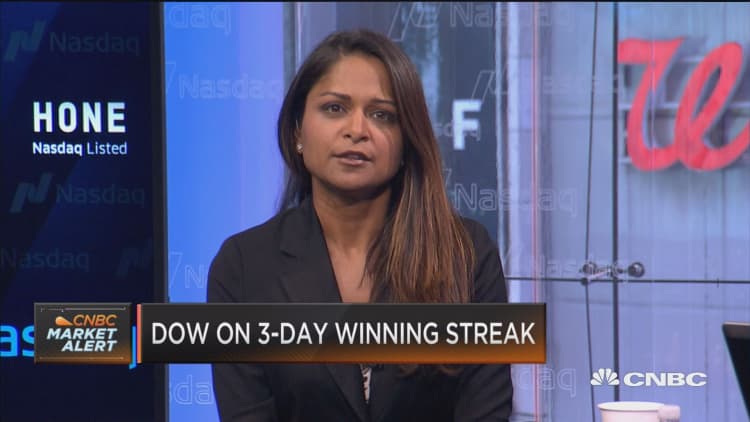
Bank of America-Merrill Lynch has a warning for investors who have sighed in relief following the U.K.'s surprising vote to leave the European Union (EU).
The message is clear: Just because the S&P 500 Index has recovered more than 90 percent of its post-Brexit vote losses, doesn't mean the United States is out of the woods. The firm says it's just a matter of time until companies start to reveal just how hard Brexit is hitting them—and it could soon get quite ugly for stocks.
"What's kind of unnerving to me is that if you look at last quarter's commentary and company outlooks, only 26 companies in the S&P 500 even mentioned Brexit," BofAML's head of U.S. equity and quantitative strategy Savita Subramanian recently told CNBC's "Fast Money."
He added: "A very small proportion of companies even had this on their radar. Now, all of the sudden you've to potential for weaker growth in Europe, potential for recession in the UK."
'How are you thinking about European exposure?'
Subramanian predicted 2017 is actually the year when Brexit will inflict the most pain on U.S. companies. She expects they'll start providing clues during second quarter earnings season, which begins in just a few weeks.
"I do think that they're going to get questions from the Street on, 'How are you thinking about your European division or your European sales exposure given what's going on?'," she said.
"A decent chunk of U.S. company sales come from Europe, 20 percent or more and that's going to be the risk."
In her latest research note, she highlighted the firm's stock market sentiment indicator, which fell to its lowest level in three years. It's actually considered a very bullish sign for the market.
Yet Subramanian is sticking by her 2000 year-end target, the lowest on the Street and about 100 points below the index's Friday closing price.
Beyond the potential effects of the Brexit, Subramanian noted that the markets are also heading into a seasonally weak period.
Companies are having a tougher time raising capital and company balance sheets have gone back to leverage ratios not seen since 2007, according to Subramanian. It's a scenario which typically happens in a late stage bull market.
"We've sort of exerted all of the levers we can to extract value from corporations based on cheap financing. We've seen tons of [mergers], lots of share buybacks—you know all sorts of financial mechanisms to generate earnings growth but nothing real," she argued.
"And what worries me is that you had this exogenous shock that happen in a fairly fragile market environment," the analyst added.
Still, she notes that there are a few salient bullish arguments as well, even as U.S. Treasury yields sank to record lows on Friday. That is a sign that investors are still nervous and see American assets as a safe haven.
"The risks and rewards are skewed to the downside. But as we acknowledge, the only reason that stocks could go higher is sentiment and a lack of alternatives," she told CNBC.
Indeed, 60 percent of stocks in the S&P offer a dividend yield that is higher than the ten-year Treasury rate, according to Subramanian.



